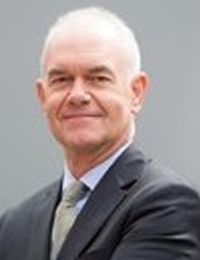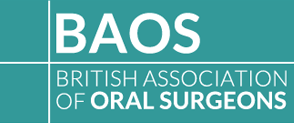
Professor Paul Coulthard
BAOS Council Member and Editor-in-Chief of Oral Surgery Dubai and Conscious Sedation
First weekend in May I was running a sedation workshop in Dubai. I have been travelling to various places in world but especially the Middle East to promote the use of conscious sedation for more than twenty-five years now. Dubai and Abu Dhabi are fascinating in that they have huge expatriate populations served by expatriate dentists trained in all parts of the world and with vastly different educational experience in respect of conscious sedation techniques and in particular a wider understanding of the implications of the patients general health. All the health professionals who seek to work in the United Arab Emirates (UAE) are required to satisfy increasingly stringent regulatory requirements as the Government is on a mission to increase the quality of care provided for the population. The UAE regulation is tight around many areas of practice of clinical dentistry and the CPD requirements are significantly greater than required in the UK.
When I first visited the UAE I felt as though my efforts were in vain as conscious sedation could not be practiced freely by dentists and my courses were attended by Department of Health officials questioning the safety of such techniques in the hands of dentists. Thankfully the skeptics were won over and those early days are now history! Interestingly there was never any questioning of ‘the need’ for conscious sedation in dentistry as this was obvious.
Similarly when I taught in Eastern Europe there was intense interest in the use of conscious sedation because dentists were aware of the stress experienced by anxious patients undergoing dental treatment. In the same countries every sort of oral surgery procedure had been carried out under local anaesthesia alone. When professional colleagues have questioned the need to offer conscious sedation and general anesthesia services for oral surgery in the UK because they are ‘not necessary’ elsewhere in the world, I have had a strong reply! Many other countries are desperate for these services to enable delivery of oral surgery treatment to be provided humanely and would love to have the sedation and general anaesthesia services that we have available in the UK. Unfortunately because of historic or economic reasons these means of managing pain and anxiety are not always available elsewhere.
There has been disproportionate attention in the use of sedation in dentistry in the UK with a huge number of published reports over the years compared to those in other areas of dentistry. This may however have been a good thing as conscious sedation practice remains in the hands of the dental team and has an exemplary safety record. Unfortunately publication of the ‘Standards’ document had a detrimental effect on the delivery of conscious sedation services with dentist ceasing to practice these techniques for fear of not satisfying in particular the new training requirements. In fact the training requirements proposed were only for new dentists and not those already using sedation techniques but there was considerable misunderstanding and confusion.
The authority of the ‘Standards’ document has been questioned and all four UK Chief Dental Officers have commissioned the Scottish Dental Clinical Effectiveness Programme (SDCEP) to update their ‘Conscious Sedation in Dentistry – Dental Clinical Guidance’ to offer some clarity to clinicians. As a member of the Guidance Development Group I was hugely impressed by the rigorous methodology used by SDCEP in their endeavor to make explicit the level of evidence supporting recommendations. Hopefully this guidance will encourage a reversal in the decline in sedation services.
As a passionate advocate of conscious sedation services I have been pleased to recently Chair a group on behalf of NHS England to write ‘Commissioning Dental Services – Conscious Sedation in a Primary Care Setting’ for commissioners. This guide should be published online by NHS England soon. This is an important element in ensuring the framework for delivery of services is in place in the current NHS system in England. So hopefully conscious sedation is back on track for the UK!
References
1. Standards for Conscious Sedation in the Provision of Dental Care: Report of the Intercollegiate Advisory Committee for Sedation in Dentistry (IACSD). 2015;
http://www.rcoa.ac.uk/system/files/PUB-STDS-CONSC-SEDN-DNTL-2015.pdf..
2. Scottish Dental Clinical Effectiveness Programme (SDCEP). Conscious Sedation in Dentistry – Dental Clinical Guidance. Third Edition. 2017
Publisher: Scottish Dental Clinical Effectiveness Programme (SDCEP), Dundee. URL: http://www.sdcep.org.uk/published-guidance/sedation/
3. Commissioning Dental Services – Conscious Sedation in a Primary Care Setting. NHS England. In Press 2017.
Professor Paul Coulthard
BAOS Council Member and Editor-in-Chief of Oral Surgery
